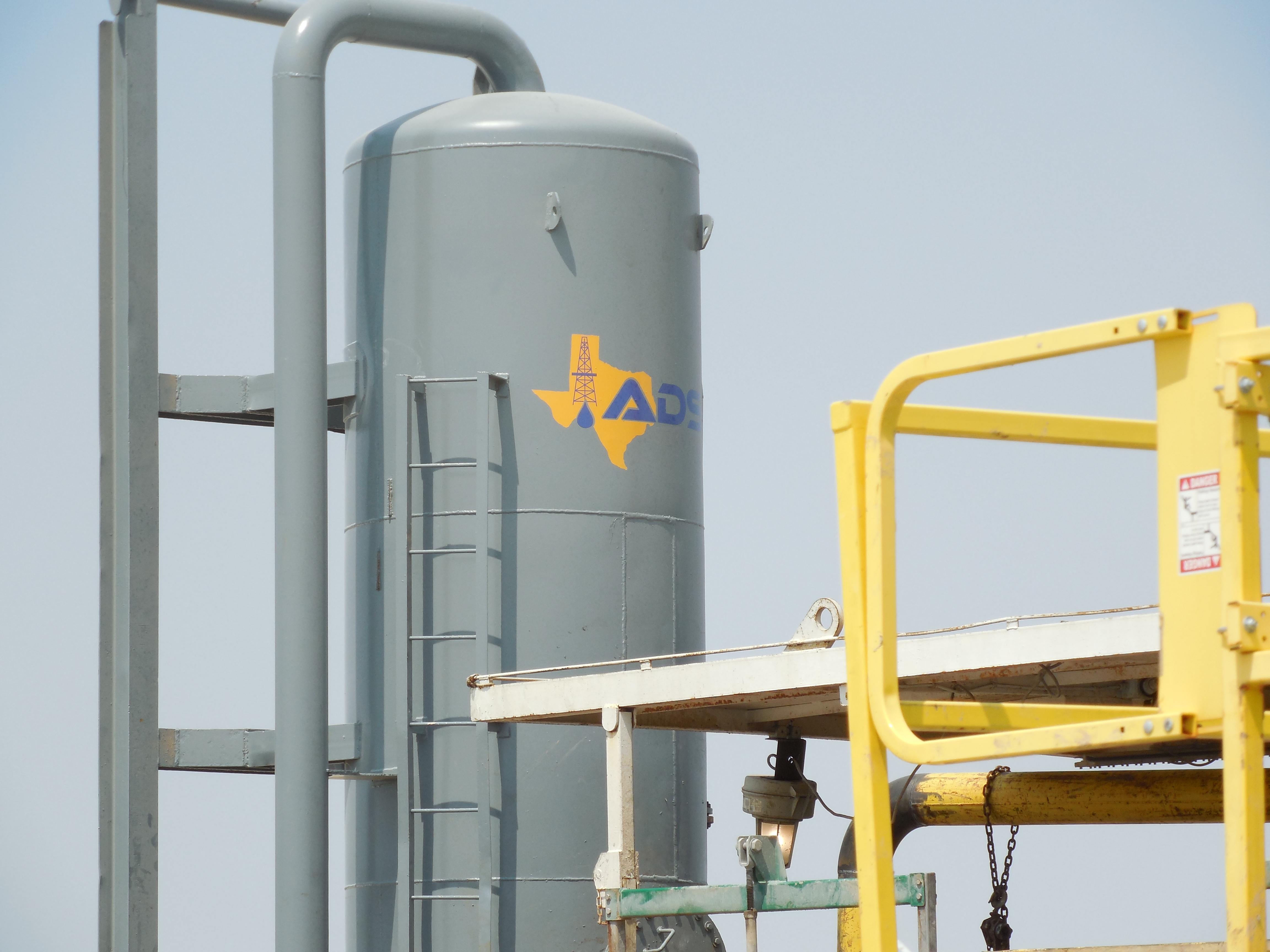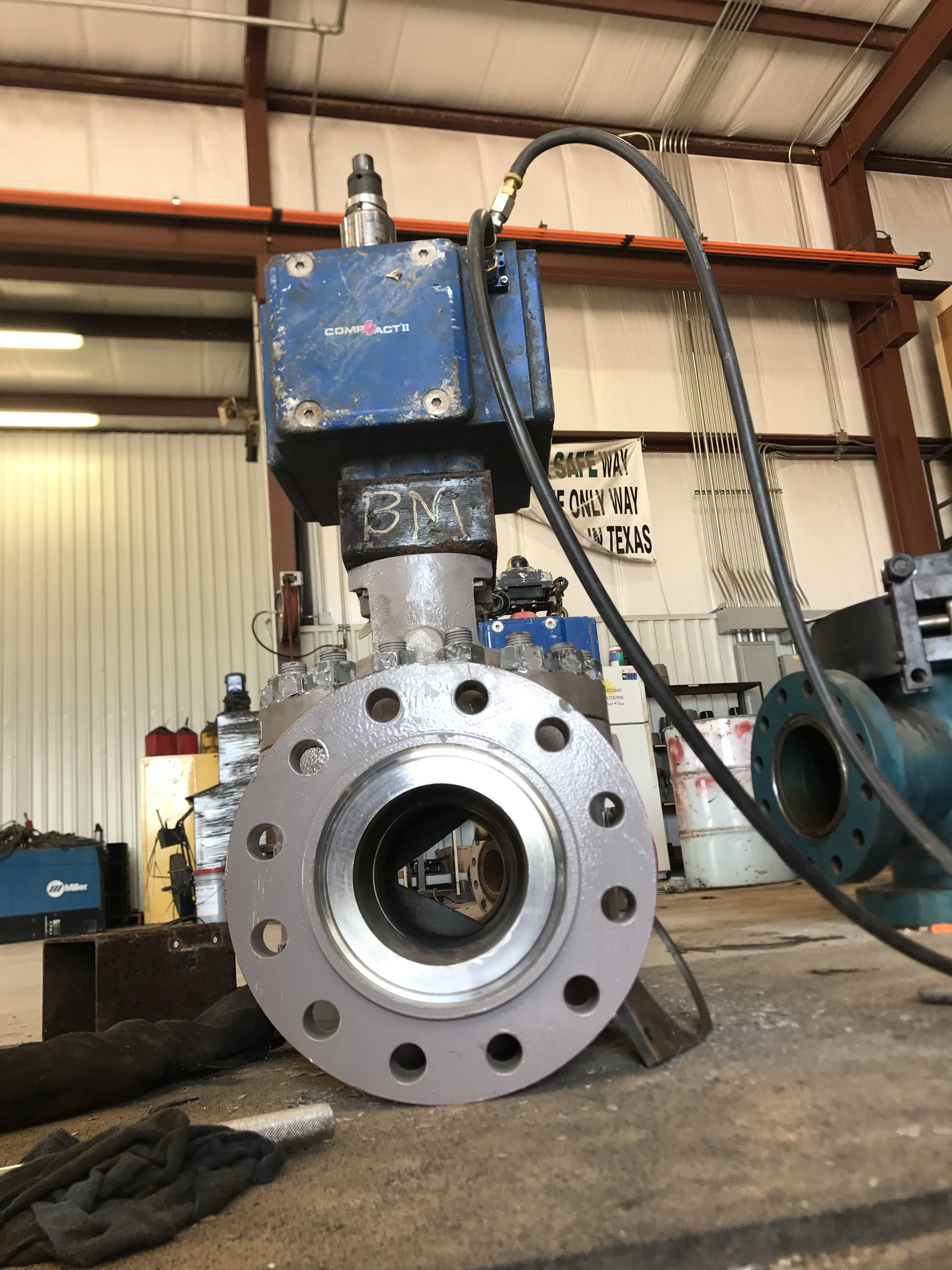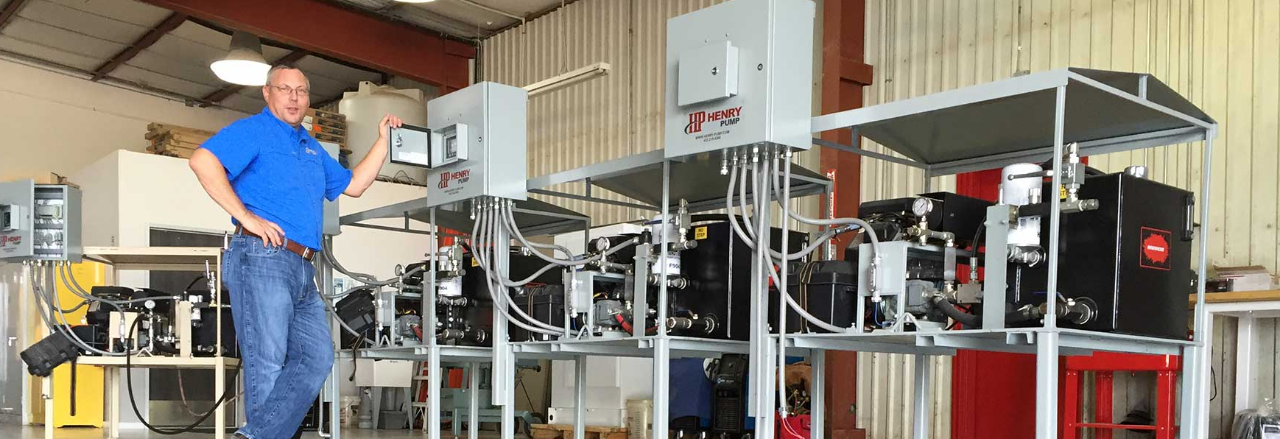At places like ADS (Air Drilling Solutions) and Henry Pumps—manufacturing kinds of places—the race is to the swift and the battle is to the strong. If, that is, we think of “swift” as streamlined and “strong” as adaptable.
By Paul Wiseman
How does a Scottish Highlander end up in Midland, Texas, presiding over a company that manufactures and installs rotating control devices, automated back pressure controls, mud gas separators, and other devices?
The short answer involves Aberdeen and the North Sea, other round-the-world stops, and a most recent move from Florida.
About 10 years ago, Air Drilling Solutions was founded in Midland. Scotsman Charlie Orbell, who had previously run an international oil services company, bought Air Drilling Solutions in 2016.
In June of 2017 they founded ADS Services and located it in Midland as well. ADS’s products were manufactured in Houston—but with all of their customers in the Permian Basin they soon learned that it was not cost-effective to have their manufacturing so far away. They needed to connect with a manufacturer that would make their rotating heads locally and on schedule. Delays and distance at that point were hurting business.
A diligent search for a local machine shop culminated in the spring of 2018 with the purchase of Alley’s Industrial Services in Odessa.
Alley’s had been founded in 1985 by current manager Sean Alley’s father. Within a few years of their founding Alley’s had agreed to a contract to renovate equipment for a major area drilling company. This company was their primary client.
Sean’s father passed away when the younger Alley was in college, so he moved back to Midland to run the company. By 2017 his mother, who still worked in the office, was ready to retire.
There was also a need for some fresh capital.
The approach of Orbell and his associates solved issues for both parties.
Says Valley: “I grew up in this building and I’ve thought from day one, ‘If I could change that,’ or ‘If I could just move this.’ So to finally see that come to fruition and see the return on it is amazing for me.”
“The oilfield is fueled by somebody getting mad at somebody and quitting and making the exact same thing somewhere else.” —Alley
As stated, ADS was facing production and cost delays with their Houston manufacturing source. “We were looking at how can we develop our own prototypes and technology,” Orbell recalled. “So we looking into companies that were available [and] we came across Alley’s Industrial. They had the right type of machines and people, so we made that investment.”
After reconfiguring the equipment and working with Alley’s people, ADS began its first local production runs in October. “It’s given us a lot of freedom, allowing us now to develop technology, [and] our price point will now always be competitive here in the Permian.”
The opportunity for new technology is high on Valley’s list of benefits as well. “The oilfield is fueled by somebody getting mad at somebody and quitting and making the exact same thing” somewhere else. “It’s been that way since I was a kid. [Now] it’s nice to be able to come in with a fresh take and a fresh concept and actually implement change.”
Adds Valley: “To see the actual potential that we had grow into where we’re going… Now we’re at the top of the hill… …and still at the bottom of the mountain” Valley finished his sentence. Meaning they see the future but there’s still a road to travel to get there.
ADS is looking at new technology both on their own machinery and for products they make and sell. Already-implemented software has sped up processes 4-5 times.
ADS began its first local production runs in October.
On the product side, they’ve automated some of the managed pressure drilling systems, improvements that are geared toward saving onsite teams hours of downtime.
Right now, everything the shop makes will be sold by ADS itself, but future plans include exporting to outside markets. The shop also handles service work.
There are already inquiries from elsewhere, including the Middle East, about ADS’s products—but Orbell is firm in saying they want to establish their own base first before launching into much deeper waters.
“We’ll always be a Permian-Based company,” Orbell says. “We will [eventually] migrate out into other states and then other countries.”
Software has sped up processes 4-5 times.
For Valley and Facilities Manager Eddie Valles, the transition has gone well. Valles had worked with Valley for eight years previously, and he has a background in welding and manufacturing, so his input was key to the transition.
Valley and Valles look forward to restoring the shop’s API certification in Q1 of 2019, which will “basically bring awareness to what quality management even is, within the company,” said Valley.
Orbell has instituted ongoing training, with many employees, including Valles, taking classes at local colleges. Office personnel are offered the opportunity to study accounting.
Their biggest challenge comes in acquiring raw materials—a problem common to anyone using large amounts of steel. “Our [price] quotes now are good for 24 hours,” Valley said.
He added that their local metals supplier will have ordered material and, “as it’s in transit, on the ship, they call and say, ‘this is the new price.’”
Another common issue lies in finding good workers. It’s an issue ADS hopes to solve over time by building a reputation as a quality workplace.
Midland-based Henry Pump also faces those challenges, says the company’s General Manager, Trevor Hardway. The company sells a variety of oil and water pumps, whose manufacture they farm out. What’s made locally is their control panels and starter panels and drives, at which they employ about 18 workers. Henry, a subsidiary of Henry Petroleum, has been making panels for sale to outside customers for about four years.
Sales are there, but “it’s hard to find people that fit what we do,” Hardway said. “It is pretty technical—we write all of our own code in-house, and do all of our testing in-house.”
“We’ll always be a Permian-based company,” says ADS’s Charlie Orbell.
He continued, “It’s not something that everybody does every day, so it’s something you’ve got to train people [to do].”
While there is not any exact training that prepares someone to make controllers, Hardway says he looks for people who have some electrical aptitude and who can lay things out from a mechanical design standpoint.
Over their four years Henry Pump has streamlined the manufacturing process to improve efficiency. At first they did mostly custom boards, which required individual design and a small manufacturing run.
Now, “We’ve been able to take those panels and really squeeze them down into about a dozen different types. We have full-blown drawings on everything and everything, and that has helped a lot,” not only in efficiency but also in reduced hiring and design requirements.
With so many companies moving toward automation—a feature of Henry Pump’s controller boards—Hardway has a theory of why the Permian is now embracing technology more than ever before.
“We’re getting a lot of young engineers in [production] positions nowadays because of the booms,” and because lots of older people left the industry during the last bust, never to return, due to retirement or due to finding new careers. So when the boom returned, younger people took their place—younger people who are used to using their smartphones to do everything—that’s kind of the way their world has always been. So if you say, ‘I can make it to where you can get on your telephone and you can start/stop this well, speed it up/slow it down, look at all your alarms and everything,’ and they go, ‘I want that.’”
With automation, combined with personnel issues, Hardway says he tells customers they have only two options. “You either can stop drilling right now and operate what you have, or you can automate and continue to grow. Because you can’t continue finding more people.”
Even with greater automation adoption rates, he feels the Permian Basin is 10 years behind other industries in automating—largely because of the constant boom/bust roller coaster.
What he appreciates about Henry Pump is its resistance to those bipolar budget swings. “Boom or bust, [they say] ‘Here’s your budget, let’s go out and develop product.’”
Henry Pump as a whole began life as a research-and-development group to support Henry Resources and Henry Petroleum, he said. That allowed Hardway and his people to plow ahead without being thrown to the ground by runaway oil prices.
“That’s why [Henry president Jim Henry] started this company—he started the R&D group first—is that he felt like all of the technology was going into drilling. None of it was going into the artificial lift, the monitoring side of it.”
Hardway’s group was tasked with building a controller that companies could communicate with remotely, both to collect information and to make changes based on that information—without trips to a distant well.
Or, in Hardway’s words, “Instead of the ‘Oh %*#%” approach.”
Henry Pump has streamlined the manufacturing process to improve efficiency.
It might seem that the only way for either producers or manufacturers to overcome that approach on wells or with employees would be to embrace new ways of doing things. This would, at least in part, shrink the gap between employees needed and employees available.
Paul Wiseman is a freelance writer in Midland.













